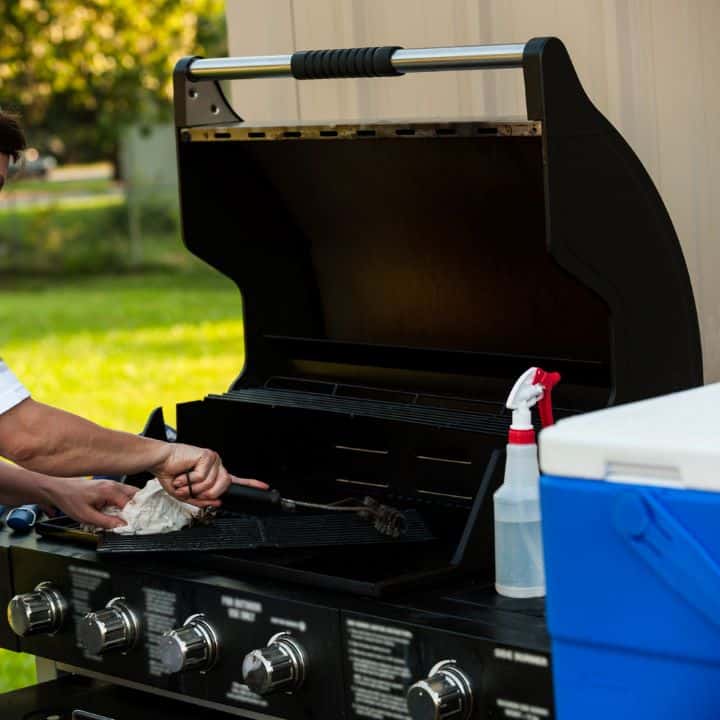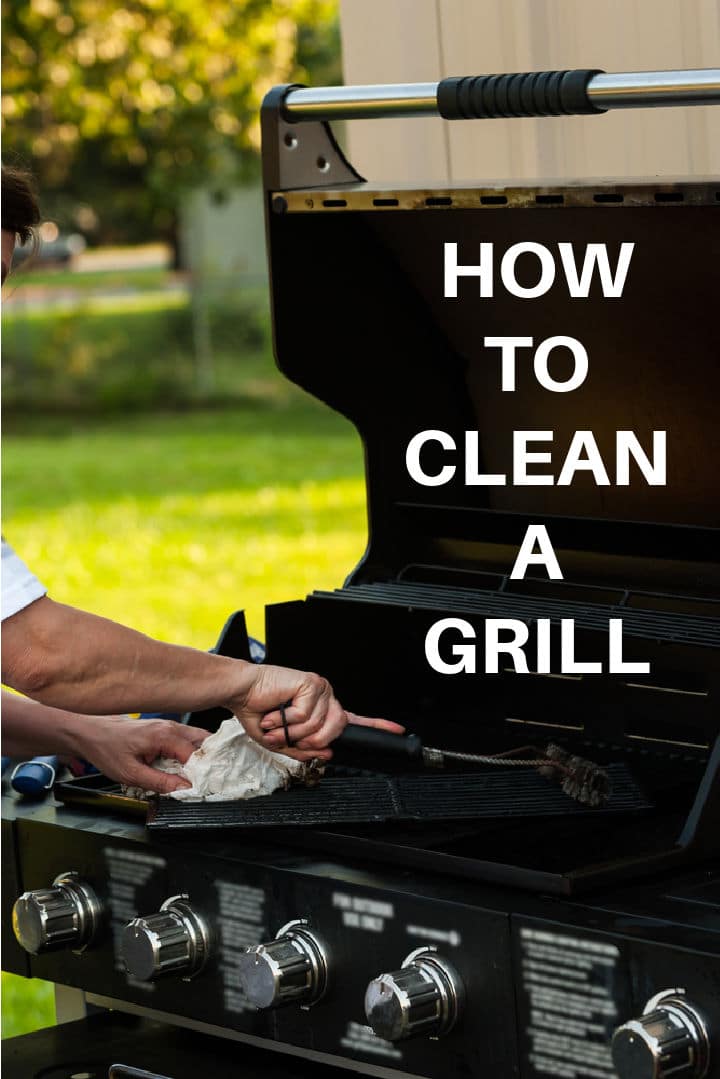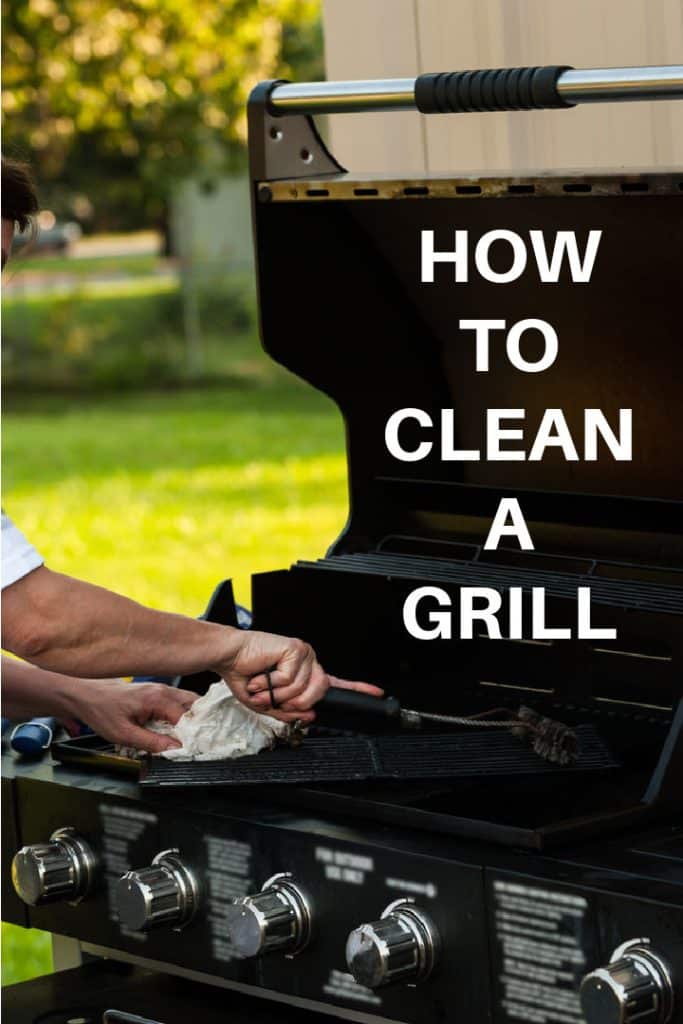Cleaning your grill regularly is crucial to maintaining its performance and extending its lifespan, whether it is a gas or charcoal grill. By keeping your grill meticulously clean, not only will you enjoy delicious and flavorful meals, but you will also ensure the safe and efficient functioning of your grill. Include grill cleaning as a part of your grilling routine.
Start by understanding the components of your grill and the maintenance needed for each type. Establishing both daily and seasonal grill maintenance practices can go a long way toward preserving the life and functionality of your grill.
Moreover, by focusing on cleaning the grill's interior and exterior, you ensure that every grilling experience continues to deliver the best-grilled meals for you and your family.

Image Credit: Shutterstock
Key Takeaways For Cleaning A Grill
- Regular maintenance is crucial for optimal grill performance and safety.
- Understanding your grill and establishing cleaning routines prolongs its lifespan.
- Cleaning your grill's interior and exterior guarantees delicious and safe grilled meals.
Understanding Your Grill
To effectively clean a grill, it's important to understand the different types of grills and their components. There are several types of grills, such as gas grills, charcoal grills, and pellet grills. Each type of grill has unique features and cleaning requirements.
Gas Grills commonly use propane tanks or a natural gas hook-up as their fuel source. The key parts of a gas grill include the burner valve, which controls the gas flow, and the stainless-steel grill grates. Properly maintaining and cleaning these components ensures optimum performance and longevity of your grill.
Charcoal Grills utilize charcoal briquettes or lump charcoal as fuel. The main elements to focus on when cleaning a charcoal grill are the grates and the vents. Keeping the grates clean prevents food residue buildup and helps you avoid unwanted flavors. Clearing the vents of ash and debris ensures proper air circulation, which is crucial for maintaining cooking temperature.
Pellet Grills combine elements of both gas and charcoal grills. They use wood pellets as fuel and rely on an electric-powered auger to feed them to a firebox. Regular maintenance includes purging the auger, cleaning the grates, and emptying the ash collector.
When planning a backyard barbecue, it's essential to inspect all parts of your grill and follow the appropriate cleaning procedures for each type. Gas grills require checking for gas leaks and brushing the burners, while charcoal grills require thorough removal of ash and cleaning of grates. For pellet grills, ensure you have enough pellets and the firebox is ash-free.
Understanding your grill's type and components is the key to maintaining its performance and hygiene. Proper cleaning and maintenance not only extend the life of your grill but also guarantee delicious and safe grilled meals.
Daily and Seasonal Grill Maintenance
Maintaining a clean grill is essential for consistently producing delicious, well-cooked food. By staying on top of daily and seasonal maintenance tasks, your grill will be ready to go whenever you need it.
Daily Maintenance
Cleaning your grill after each use is crucial to ensure it remains in good condition. After you've finished grilling, allow the grill to cool down. Once it's safe to touch, use a long-handled wire-bristle brush to scrub the grates clean of any remaining food particles and grease.
Also, be sure to empty the grease tray regularly, helping prevent flare-ups and potential fires. Finally, wipe down the grill's exterior with a damp cloth, paying attention to stainless steel surfaces and cleaning with the grain of the material to avoid scratching.
Seasonal Maintenance
At the beginning and end of the grilling season, it's prudent to perform more in-depth maintenance on your grill. First, thoroughly clean your grill grates with a mixture of water and vinegar to break down any stubborn debris.
Avoid using harsh chemicals that could leave harmful residue on the grates. Inspect your grill's burners to ensure they're clean and functioning properly. If necessary, clean them using a soft brush or pipe cleaners to remove any dirt or debris blocking the gas flow.
Next, check the hoses and connections for any leaks. You can do this by applying a soapy water solution to the hose and connections, turning on the gas, and looking for any bubbles that might indicate a leak. If you find any leaks or cracks, replace the damaged parts immediately.
In addition, give the grill's interior a thorough cleaning. Scrape off any residue or buildup, then use a vacuum or soft brush to remove the debris.
If your grill has a drip tray, ensure it is clean and in good condition. Replace it if necessary. Finally, tighten any loose screws or fasteners so everything remains in good working order.
Tools and Grill Cover
Investing in the right tools and a quality grill cover can also help with daily and seasonal grill maintenance. Using a long-handled brush and other appropriate cleaning tools can make it easier to keep your grill clean.
In contrast, a grill cover protects your equipment from the elements when not in use, preventing rust and wear. By following these guidelines for daily and seasonal cleaning and maintenance, your grill will remain in top-notch condition, ready for whenever you're in the mood for some great-tasting grilled food.
Cleaning the Grill Interior
Before you start cleaning the grill interior, make sure the grill is cool and disconnected from any fuel sources, such as propane or charcoal. First, remove the grates from the grill.
Use a stiff wire grill brush to brush away any debris, ash, and soot that may be present. Make sure to clean both the top and bottom sides of the grates, as food particles may have accumulated on both sides. A grill brush with bristles specifically designed for cleaning grates can be helpful for stubborn residue.
Once the grates have been brushed clean, it's time to focus on other components of the grill interior. If you're working with a charcoal grill, remove any remaining ash or burnt charcoal from the bottom.
On the other hand, gas grills may require cleaning burner tubes and flavorizer bars. Gently clean the burner tubes with a damp cloth and mild detergent to remove any dirt or soot.
Over time, the cook box of gas grills can accumulate grease and debris that can harm its functionality. Removing the excess grease and debris buildup from the cook box without damaging any of its components is important.
Carefully scrape away the debris from the cook box using a putty knife or scraper, paying particular attention to corners and small crevices where buildup usually occurs.
Once you clean all the components, apply a thin layer of vegetable oil to the grates to prevent food from sticking during future cookouts. Reassemble the grill, making sure you properly secure and position all parts.
By routinely cleaning the grill interior, you'll maintain the grill's functionality and enhance the overall flavor of the food you cook. A clean and well-maintained grill ensures that your backyard barbecues remain a delicious and enjoyable tradition.
Cleaning the Grill Exterior
Keeping your grill clean is crucial for both its appearance and performance. To begin, gather the necessary tools, such as a grill grate brush, a bucket of warm, soapy water, a microfiber cloth, and stainless steel cleaner if you have a stainless steel grill.
First, make sure the grill is cool and disconnected from any gas or power source. Remove any loose debris on the grill exterior with a soft brush. Then, dip the microfiber cloth in the warm, soapy water and gently wipe the exterior surface of the grill.
Pay special attention to areas with residue buildup, as this can impact the performance of your grill. Use a stainless steel cleaner to remove any fingerprints, smudges, or stains for stainless steel grills.
Apply the cleaner with a microfiber cloth, following the stainless steel grain, to avoid scratching the surface. Wipe off any excess cleaner with a clean, dry cloth.
If your grill has painted steel surfaces, it's best to avoid using harsh chemical cleaners or abrasive tools as they can damage the paint. Instead, clean these surfaces with warm, soapy water and a microfiber cloth. Regularly check the painted steel for signs of rust and promptly address any rust spots to prevent further damage.
Finally, remember to clean the grill grates and tools. Remove and brush the grates with a stiff grill grate brush to eliminate stuck-on food and residues. Use soapy water and the grate brush to scrub the grates thoroughly, then rinse with clean water.
Ensure the grates are dry before placing them back on the grill. Following these steps will keep your grill looking good and functioning efficiently for many enjoyable outdoor cooking sessions.
Deep Cleaning Your Grill
A thorough, deep cleaning of your grill improves its performance and extends its lifespan. To begin, gather the necessary materials, such as a grill brush, soapy water, dish soap, a cleaning solution or vinegar, aluminum foil, a grease tray, and a shop vac, if available.
To begin cleaning your grill, turn it off and unplug it. Then, remove the grates and any other removable parts. While the grill is still warm, use a grill brush to scrape off any debris or cooked-on grease.
In case of stubborn residue, crumple a piece of aluminum foil and use it to scrub the grates. Once you have cleaned the grates, place them aside. Next, prepare a cleaning solution by mixing equal parts dish soap and warm water. Scrub the grill's interior with a sponge or cloth soaked in soapy water, paying particular attention to the lid and sides.
Clean the grease tray thoroughly, freeing it from accumulated grease and debris. For a more environmentally friendly alternative, use a mixture of equal parts vinegar and water as your cleaning solution.
Check for leaks or damage if your grill has a gas or propane tank. If you find any issues, address them immediately, as a damaged fuel source presents a significant safety hazard.
For the grill's exterior, apply a gentle cleaning solution, such as a mixture of soap and water. Wipe down all surfaces using a soft sponge or cloth, including knobs, handles, and the lid. Rinse with clean water and allow the grill to air dry.
Lastly, reassemble your grill, ensuring all parts are properly secured and positioned. Conduct a final visual inspection to confirm the grill is clean and ready for use.
By following these steps and maintaining a regular cleaning schedule, your grill will remain in optimal condition, delivering delicious and even cooking results every time.
Frequently Asked Questions
What Is the Best Method To Clean a Gas Grill?
To clean a gas grill effectively:
- Start by turning off the gas supply and disconnecting the propane tank.
- Remove the grates, burners, and heat diffusers, then clean each part using soapy water or a grill cleaner.
- After cleaning, rinse them thoroughly and let them dry.
- Use a soft brush or cloth to wipe down the interior surfaces of the grill.
- Reassemble and preheat the grill for a few minutes to burn off any remaining residue.
Which Household Items Can Be Used for Grill Cleaning?
To clean the grill, create a paste using baking soda and water, apply it to the grates, and scrub with a brush or cloth. Additionally, you can use household items such as vinegar, aluminum foil, and dish soap.
Alternatively, mix equal parts vinegar and water in a spray bottle, spray the grates, and use a sponge or brush to clean them. Scrubbing with crumpled aluminum foil can also effectively remove debris. At the same time, a simple dish soap and water solution works well for everyday cleaning.
How Often Should You Clean Your BBQ Grill?
To ensure optimal performance and safety, it is recommended that you clean your BBQ grill after every use. Quickly remove any food residue from the grates using a brush and perform a more thorough cleaning every few months or at the beginning and end of the grilling season. This involves cleaning the grill's burners, heat diffusers, and interior surfaces.
Are There Any Effective Alternatives To Using a Grill Brush?
If you don't have a grill brush, use alternative tools such as crumpled aluminum foil, a nylon scrubbing pad, or a wooden scraper designed for grill cleaning. These tools can help remove debris and residue from grill grates.
What Is the Proper Technique for Cleaning Grill Grates?
To clean grill grates properly, preheat the grill for a few minutes to loosen the residue. Turn off the heat, then scrub the grates with a grill brush, scraper, or other cleaning tool. For stubborn debris, you can soak the grates in soapy water or a grill cleaning solution, then scrub again. Rinse the grates thoroughly and let them dry before returning them to the grill.
Is It Necessary to Oil Grill Grates Before Cooking?
Oiling grill grates prior to cooking can help prevent food from sticking and make grilling easier. Dip a cloth or paper towel in vegetable oil to oil the grates, then use tongs to rub the oil on the grates. Be sure to heat the grill for a few minutes after oiling, as this helps season the grates and further reduces the chances of food sticking.

Image Credit: Shutterstock
This article originally appeared on Wealth of Geeks.






